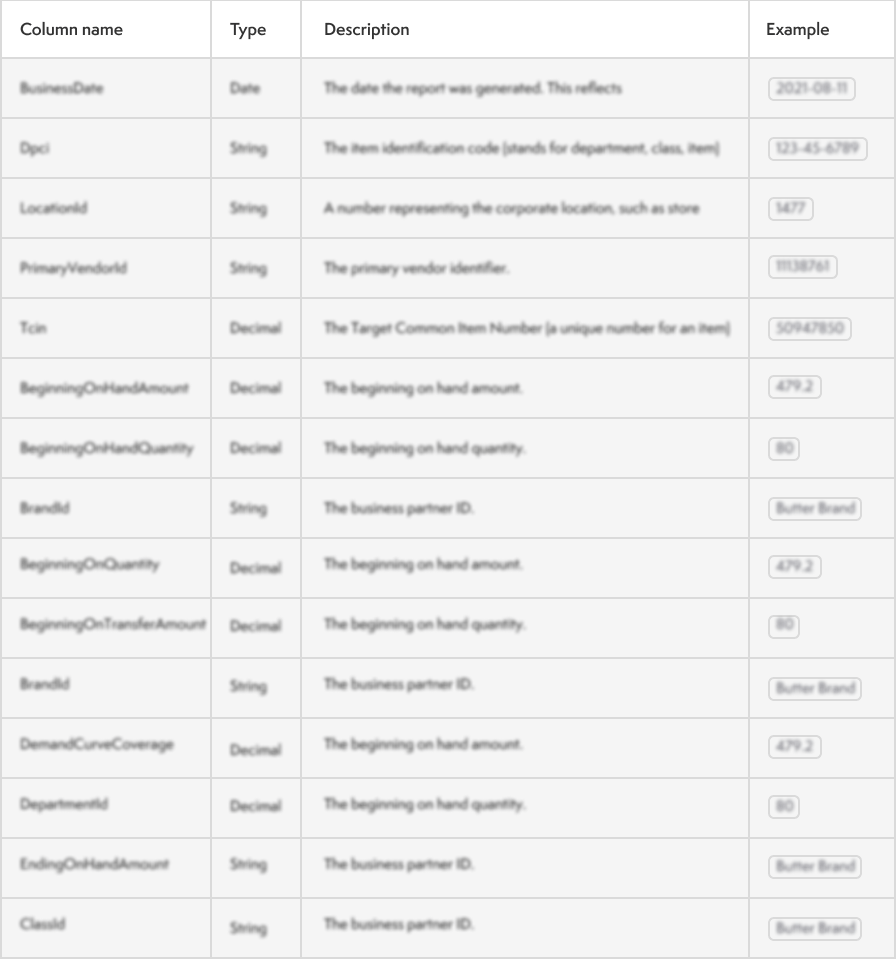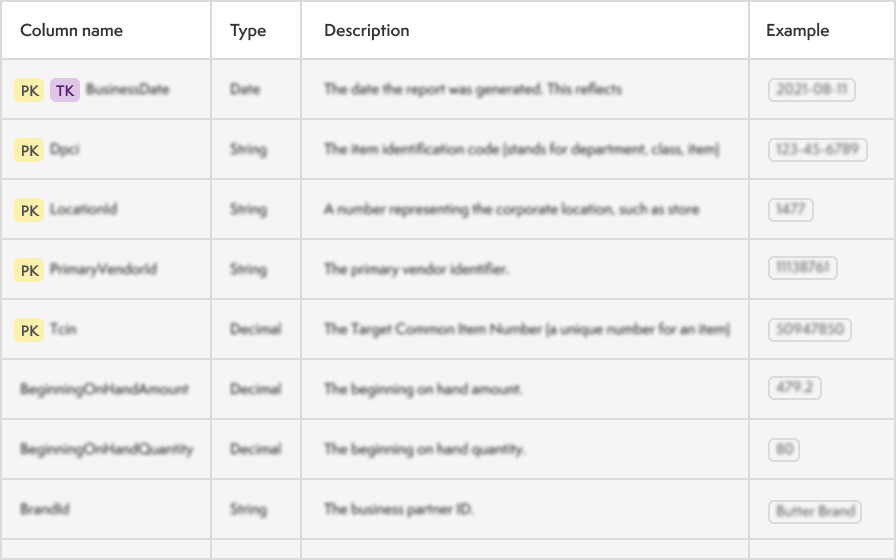Seamlessly integrate Target data into your current systems
Crisp ensures a reliable, secure flow of POS, purchase order, and supply chain data from Target into the tools and systems you rely on.
With Crisp, you can spend less time maintaining data pipelines and focus more on value-added insights – and everyone from HQ to field teams gets the information they need, where they need it.
Take advantage of all the data Target has to offer
Suppliers must already have access to Target data in order to use Crisp. Available data from Target typically includes:
- Gross Margin
- Daily and Weekly Sales
- Daily and Weekly Inventory
- Purchase Orders
- Product Detail
- Stores
- Promotions
- Pricing
- Forecasts
Crisp provides detailed data model documentation that includes primary keys and reference tables. To view Crisp’s full data schema, contact our team.

Feed your current data workflows with timely source data

Get to insights faster with standardized data and clear dimensions

Power Target teams with insights to drive your business
With user-friendly analytics based on a deep understanding of Target data, sales, supply chain, and category teams can unlock insights to grow sales and streamline operations.
- Customizable stock reports
- Ad-hoc reporting
- Report scheduling
- Excel exports
Reports include:
- In-store and online sales
- Out-of-stock analysis
- Forecasting
- Inventory Flow Analysis and Suggested Orders
- Promo effectiveness
- Price sensitivity
- PO tracking
Data that your teams can trust
Crisp transforms raw retailer data into clean, organized data ready for database storage, modeling, and reporting. Now, analysts can focus on value-added analysis and business teams can trust the data they’re using.
Data structuring: Crisp organizes disparate retailer data sets, creating fact and dimension tables that can easily be joined using true primary keys and foreign keys. Crisp also meticulously documents how items and reports connect back to source data – making it easier to write queries, build reports, and work with new data sets.
Harmonization: Crisp creates common nomenclature across reports and data sources (e.g. “warehouse” vs “DC”) to simplify reporting and help you uncover insights across the business.
Cleansing: Crisp trims away extraneous characters that can bloat data sets and standardizes formatting for cleaner-looking data.
Custom attribution: Apply unique attributes and groupings to your data to match your internal standards.
Semantic modeling: Crisp translates raw retail data into the language of your business, serving as the foundation for everything from user-friendly analytics to AI/ML applications.
Portal changes? No problem.
Crisp handles portal changes with ease, quickly adapting to new versions while maintaining previous schema versions. You can decide when to make the switch, minimizing impact to downstream reporting.
Even when vendor portals go down, Crisp is still up – so you can rest easy that data is always available when you need it.
Case Studies
-
J.M. Smucker Pet
J.M. Smucker used Crisp’s SOLYS platform to transform Target’s pet aisle into a haven for pet parents. Using real-time insights to drive seasonal sales, they were able to elevate the shopping experience both in-store and online.
-
PopSockets
PopSockets uses Crisp’s real-time data integration to optimize inventory, improve retailer relationships, and drive product innovation.
-
Mars’ Nature’s Bakery
Mars’ Nature’s Bakery uses Crisp to improve their supply chain efficiency and inventory management, supporting their rapid growth into 2025.